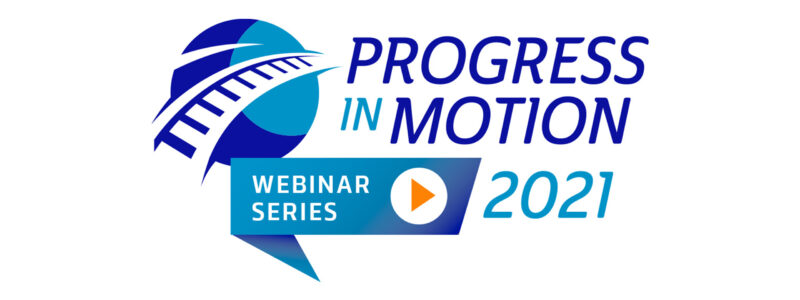
The Progress in Motion Rail Forum is an ideal venue for planners, elected officials, economic developers, and business and industry representatives to discuss issues impacting rail, and rail’s contribution to North Carolina’s transportation system and economy. Throughout this series, we invite you to be a part of the dialogue and help maximize the state’s rail assets through an exchange of ideas and information. In our first webinar, we explored how the past year will change the future of railroading in our state.
The challenges of 2020 profoundly changed the rail industry, logistics, how we communicate and much more. We asked Arthur Adams and Roquita Coleman-Williams about what these changes mean for railroading long-term.
Arthur Adams: Scheduled Railroading for CSX

CSX will continue to meet customer needs through investments in new technology, like scheduled railroading. Adams shared that scheduled railroading is transforming CSX into a more efficient and reliable railroad, improving its operating model and commitment to excellence. Through scheduled railroading, CSX meets its goals of:
CSX plans on becoming more than just a railroad. In addition to moving people and freight, it will focus on providing consultative and comprehensive solutions from producer to end markets in the supply chain; minimizing total freight spend by using technology to make rail more accessible and reliable; and building value-add opportunities for customers and partners to create a competitive advantage.
Roquita Coleman-Williams: A Critical Mindset Shift for Railroading

DEI efforts can breathe new life into collaborative cultures that will set North Carolina apart from other states and deepen its competitive advantage, according to Coleman-Williams. To create a culture that honors excellence and invests in progress, she suggests putting disruption on I.C.E. – Intentionally collect feedback, create value through creative conversations and empathetic listening, and model excellence in entrepreneurship by plugging into conscious competence.
Intentionally collect feedback from customers, partners, team members and stakeholders to build deep, more trustworthy relationships. Feedback is a gift. Creating a feedback culture where anyone at any level in the organization can give or receive feedback is key to creating an inclusive and equitable culture. It also allows you to build and repair relationships with those you work with and for. In practice, this means practicing the “2×2” rule: when giving feedback, share two things the individual did well and two things they could do differently. Additionally, companies should set the expectation to ask for feedback after every single interaction.
Create maximum customer and stakeholder value through creative conversations and empathic listening. “Creative conversations and empathic listening mean you approach interactions with intentionality and curiosity instead of a solution,” explained Coleman-Williams. When conversing, fully pay attention by being silent in person and in your mind. Don’t just listen to what they say, consider how they feel, what really matters to them and why.
Model excellence in entrepreneurship by unplugging the autopilot and plugging into conscious competence. Consider how you can be a model of excellence. Coleman-Williams recommends being proactive and developing skills that foster diversity, equity and inclusion. “At the end of the day, it is our personal responsibility to do the work necessary to create a competitive advantage,” she noted. “That means activating habits that make a more equitable and inclusive culture.”
For more details and questions from the audience, please watch the full webinar.